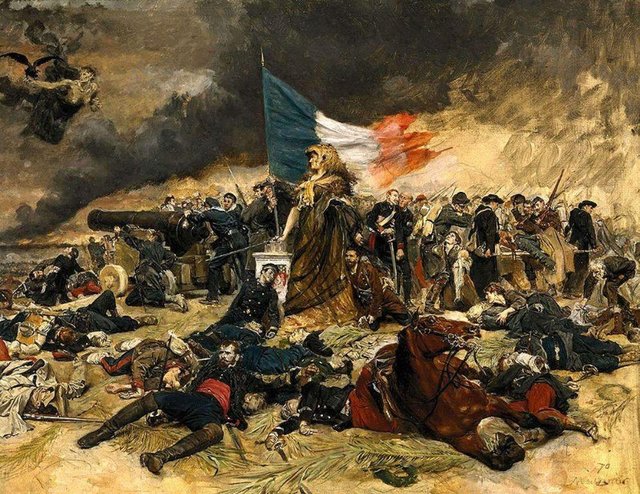On this day in history. The siege of paris began
WRITTEN BY: John Swift
This contribution has not yet been formally edited by Britannica. Learn more.
Siege of Paris, (19 September 1870–28 January 1871), engagement of the Franco-German (Prussian) War (1870–71). After the defeat at the Battle of the Sedan, where French emperor Napoleon III surrendered, the new French Third Republic was not ready to accept German peace terms. In order to end the Franco-Prussian War, the Germans besieged Paris beginning on 19 September 1870. The length of the siege helped to salve French pride, but also left bitter political divisions.
Surrender of Napoleon III after the Battle of Sedan, September 1, 1870.
Surrender of Napoleon III after the Battle of Sedan, September 1, 1870.
Library of Congress, Washington, D.C. (digital. id. pga 03463)
The hastily assembled Parisian garrison was of questionable quality, but the city’s walls and outlying fortresses were formidable. Field Marshal Helmuth von Moltke, commanding the German forces, had no intention of wasting lives by storming the city. Instead, the Germans settled down to starve Paris into submission.
Print depicting scenes from the Prussian siege of Paris (1870–71).
Print depicting scenes from the Prussian siege of Paris (1870–71).
© Photos.com/Jupiterimages
The garrison made three sorties to try and break the siege, but they achieved little. Within the city, as food supplies dwindled, "siege cuisine" entered French mythology. Nearly every animal in the zoo was consumed in the course of the siege, and feline and canine butchers appeared. However, the poorest citizens suffered most; few deaths from starvation occurred but infant mortality soared and working-class resentment simmered.
French republican politician Léon Gambetta (in hat, centre) about to escape besieged Paris for Tours by balloon, October 1870, during the Franco-German War.
French republican politician Léon Gambetta (in hat, centre) about to escape besieged Paris …
© Photos.com/Jupiterimages
Losing patience, the Germans finally shelled the city, firing 12,000 shells in three weeks, but they had yet to bring up heavy siege guns and killed fewer than one hundred Parisians, which had little impact on Parisian morale. However, morale plummeted when the city stood on the verge of starvation. No relief came, and many Parisians—especially the working classes—were unaware of the guerrilla warfare harrying German communications or the suffering of newly raised French armies and felt deserted by France. In the end, the city capitulated, on 28 January 1871, regular troops were taken prisoner, and the city suffered the humiliation of a triumphal German march through its streets. Such indignities would not be forgotten quickly.
Losses: French, 24,000 dead or wounded, 146,000 captured of 400,000, not including 47,000 civilians dead or wounded; German, 12,000 dead or wounded of 240,000

A good history lesson!